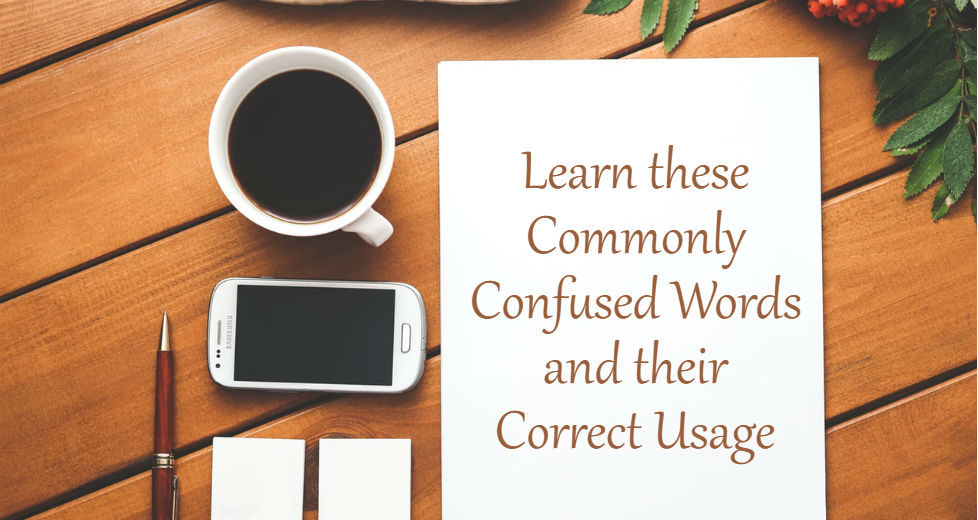
We all agree that language is an important part of the expression, it helps an individual to convey the ideas and emotions to the outer world in an understandable manner. With words as the ultimate power at hand, one can express and communicate to other effortlessly.
What if the words that define language itself become the barrier to the expression of thoughts?
Doesn’t that sound contradictory? The words which are the building blocks of communication can actually complicate the whole thing. Yes, there are many words in the English language that can mislead your thought of expression to a bizarre level. To avoid getting pissed off because of these confusing words, you must know about the commonly confused words that you use every day.
1. Adverse and Averse
These two words are often confused with each other. You must know that the meaning of Adverse is “to prevent success or the development” whereas the rival word Averse means “having a strong dislike or opposition to something”.
Correct Usage
Adverse: Heavy rainfall leads to the adverse growth of crops.
Averse: Megan averse to pay 10$ for a company’s share which has no revenue.
2. Affect and Effect
Yeah.. these two words are the most misunderstood ones. Let us clear your doubt. The meaning of Affect is “to make a difference” whereas the rival word effect means “a change which is a result or consequence of an action”.
Correct Usage
Affect: New Technology can negatively affect young, developing minds.
Effect: The effect of the medicine on her illness was fast.
3. Compliment and Complement
This is another pair of most commonly confused words in English and their meanings are poles apart. The meaning of Compliment is “to praise someone or admire” whereas the rival word Complement means “an extra feature has been added to a thing to enhance the functionality”.
Correct Usage
Compliment: Give my compliments to the chef.
Complement: Tomato sauce is a complement for Sandwich.
4. Discreet and Discrete
Being pronounced the exactly same way, most people get confused while using these. The difference lies in their meaning as the word Discreet means “careful in one’s speech or actions” whereas the conflicting word discrete means “Individually separate”
Correct Usage
Discreet: Jack is discreet about his clients.
Discrete: Our hotel has three discrete menu cards.
5. Farther and Further
Still puzzled about these words.. no? Dont worry, we are here to the rescue. The meaning of the word farther is “Figurative distance” whereas the rival word further means further is “Subjective distance”
Correct Usage
Farther: Asha lives on the farther side of town.
Further: We need further research on this topic.
6. Insure and Ensure
Let me get straight to the point. The meaning of the word Insure is “arrange for compensation in the event of damage or a loss” whereas the rival word Ensure means “make certain about a thing”
Correct Usage
Insure: Rocky is going to insure his motorbike
Ensure: I ensure to never get late for the school.
7. Principal and Principle
Last but not the least. Principal and Principle are the most commonly confused words ever. The meaning of the word principal is “someone in a position of authority” whereas the rival word principle means “a fundamental truth”
Correct Usage
Principal: Mr. Bob is the principal of the high school.
Principle: Sam is a man of principle.
Now that you have learnt how to use these commonly confused words, so you better think before you speak!







![Ginger Software Review of [2019] + Coupon Code! Ginger Software Review](https://www.vowelor.com/wp-content/uploads/2019/10/Ginger-Software-Review-100x70.png)
